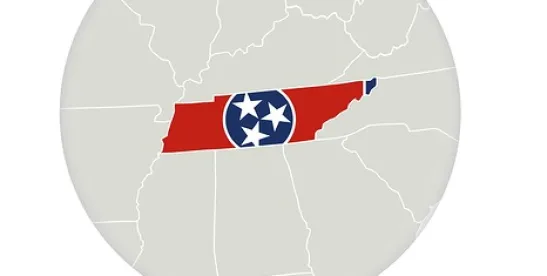Things just got more complicated in Tennessee for private employers wrestling with COVID-19 vaccines. On October 30, the Tennessee Legislature passed an omnibus COVID-19 bill that does not entirely line up with the current or expected federal mandates. While the bill is not law yet, the highlights include:
-
Don’t ask for proof of vaccine. The bill prohibits many private businesses in the state with one or more employees from requiring proof of COVID-19 vaccination status.
-
Federal contractors can seek an exemption. Federal contractors threatened with the loss of federal funds as a result of complying with the law can apply for an exemption from the prohibition on vaccine mandates.
-
Employees can sue. If an employee is “injured” as a result of a COVID-19 vaccine mandate, then the employee has a private right of action for injunctive relief and to recover compensatory damages and reasonable attorneys’ fees against the employer.
-
Limited exemption for healthcare providers. The only private businesses exempt from the bill’s prohibition on vaccine mandates are healthcare providers enrolled in Medicare or Medicaid that are subject to other requirements contrary to the state’s potential new COVID-19 law, assisted-care living facilities, homes for the aged, nursing homes, and residential hospice providers.
The bill has now been sent to Tennessee Gov. Bill Lee, who has not yet stated whether he will sign the bill, veto it, or let it sit on his desk for 10 days and let it become law without his signature (a possibility in the state).
Potential New Law Adds Compliance Questions
If the bill becomes law, it clouds a picture already plaguing employers. Covered employers will be prohibited under state law from requiring proof of COVID-19 vaccination status, unless the employer is a government contractor and receives an exemption, while the federal mandates will require employers to get proof of vaccination.
Meanwhile, the EEOC has stated that nothing under federal law prohibits a private employer from mandating employees receive the COVID-19 vaccine, so long as disability and religious accommodations are made. In fact, the EEOC recently updated its guidance (look at Section L) and provided a copy of its internal religious accommodation request form (in case you are looking for an example). Furthermore, President Biden’s executive order requires government contractors to mandate that employees working on or in connection with a government contract be vaccinated. Perhaps even more importantly, OSHA is set to release an emergency rule any day now requiring employers with 100 or more employees to have their employees vaccinated or have them tested weekly.
Government Contractors Can Seek an Exemption
Government contractors seeking to apply for an exemption from the potential new Tennessee law would apply to the state’s comptroller of the Treasury, who will set up a process for seeking an exemption. Exemptions are good for one year. After that year, the government contractor must seek to renew the exemption for a subsequent one-year period. If the conditions change and the government contractor is no longer subject to potential loss of federal funding as a result of complying with the state law, then the contractor must notify the comptroller within 14 days.
We will of course be monitoring whether this bill becomes law in Tennessee and will provide updates when we know how Gov. Lee responds.





 />i
/>i
